
The fence separating the highway from the Jungle in the outskirts of Calais, built to prevent people to climb into trucks bound for the U.K. by Flickr user malachybrowne, Attribution 2.0 Generic (CC BY 2.0)
The following is a first-hand report from two Global Voices contributors, Suzanne Lehn and Marie Bohner, who volunteered with a British NGO in the migrant camp of Calais, France.
The Calais Jungle, as it is called these days, perfectly exemplifies the migrant crisis in Europe. Lots of refugees and migrants are desperately attracted to the United Kingdom, for reasons real or imagined; a common language, existing communities of kin and job opportunities. Their arrival in Calais, the French town closest to England, is a hoped-for precursor to entry into the United Kingdom.
The U.K. government, and a large part of its population, however, does not want them to enter, which means the French and U.K. governments are cooperating to build high barbed fences and deploy anti-riot police forces at strategic points in order to prevent illegal crossings into the U.K.
A number of charities have been launched to help out in Calais, fuelled by a swell of volunteers, mostly from the U.K. and Ireland, who are motivated both by a dislike of anti-migrant politics in Europe and by their own desire to extend help to migrants and refugees enduring dire living conditions.
Calais, pleasantly located on the Côte d'Opale, is a major ferry port linking to the British port of Dover.
Since 1994, the Channel Tunnel has linked the two countries by rail.
To the great displeasure of some residents of Calais (population 126,774), the city has become internationally and infamously known for its large makeshift camp of around 6,000 residents, where a mix of refugees, asylum seekers and economic migrants from many war-torn or otherwise troubled areas in the world try to survive while attempting to enter the United Kingdom stowed away on big trucks, ferries, cars, or trains.
#HelpRefugees in Calais
We wanted to join the help effort and also take a closer look at this large unofficial community living and working inconspicuously in and around Calais to aid and support the refugees and migrant population.
The following information, interviews and pictures try to summarise what we learned from an extremely enlightening week with the people of Help Refugees, a U.K. nonprofit partnering with a local French association L'Auberge des Migrants.
Help Refugees states on its website:
We help the most vulnerable people currently reaching Europe's shore by supporting local groups, charities and volunteers who are at the front lines, carrying out life changing work in difficult circumstances. We are working everywhere where Governments and NGOs cannot be. Unconstrained by red tape, politics and bureaucracy, we act fast to change lives. Your donations go directly to the people who need it most.
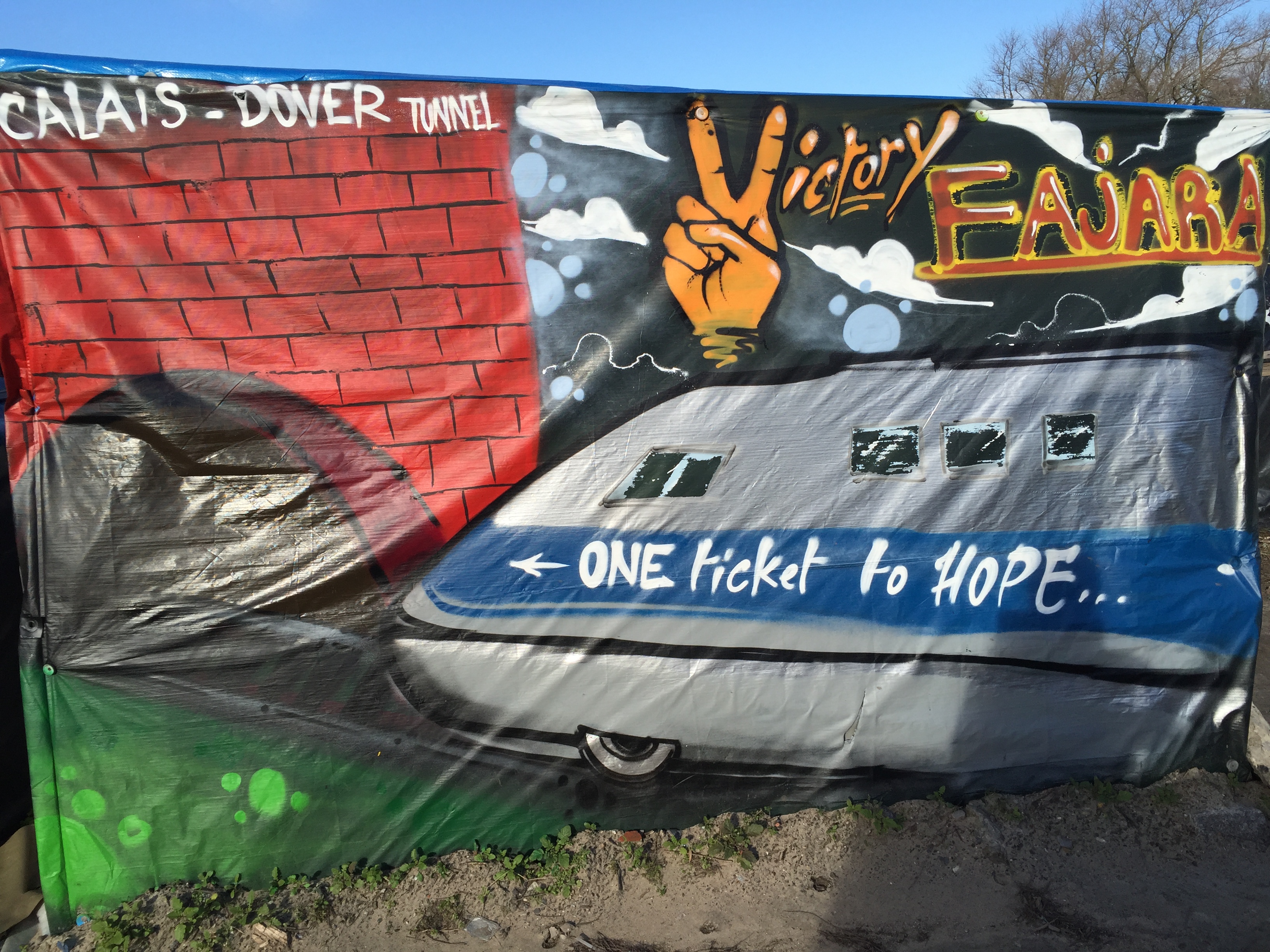
Photo from Album Calais Jungle, 2016-01-17 13.02.06, by Flickr user malachybrowne, CC Attribution 2.0 Generic (CC BY 2.0)
This intense work takes place in a large warehouse inconspicuously located inside one of Calais’ business centres.
Every day, 100 to 150 volunteers of various ages and backgrounds, whether staying for a few days, weeks or months, sort donations of clothes and toiletries, pack food parcels and firewood for Calais Jungle residents to be able to cook their own meals, load and unload trucks and vans.
They take part in camp cleanups, distribute food and other items, teach french and english, and more.
Management is fluid and efficient, the atmosphere friendly and respectful. The dignity and security of the people living in the camp are the top priorities.
How does it all work on the ground?: An interview
Hettie, a 24-year-old Briton from Help Refugees, is — alternating with colleague Cécile — in charge of welcoming the volunteers and organizing their daily work on the site.
Global Voices had quite a few questions to ask her.
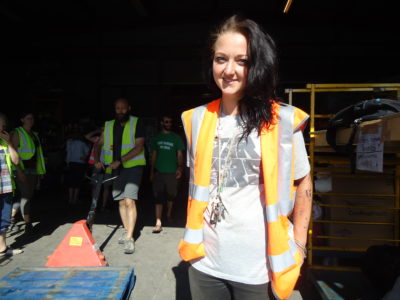
Hettie, a member of the management team of the Help Refugees operation in Calais. July 2016. Photo: Marie Bohner
Global Voices (GV): Can you please introduce the operation in a few words.
Hettie (H): Here French Auberge des migrants and British Help Refugees come under one roof and work together. When Help Refugees first came to Calais, they were looking to work with groups and organizations on the ground, that's how the relationship came to be.
GV: How do you explain the fact that there are so many volunteers from the U.K. and few French people?
H: I think it's just a different way of doing it. When you are here for a while, you notice that, from the French side, there's often volunteers that having volunteered for ten years, come once a week, or once a month, that's total commitment, whereas in Britain, we like to do this, “Tadaa, I'm here for a week” so it's very visible that we are all here. And as well, there's a lot of frustration, and anger, in the U.K. about what's going on, and here is an opportunity do what the government is failing to do.
GV: How long have you been staying here? and how long do you plan to stay?
H: I have been here for ten months. Actually I was supposed to leave a month ago (she laughs), to head to Greece with Help Refugees, to follow a grassroots group particularly in northern Greece. I set up the first ground team of this charity. But I came back, because it's very hard to hand over, to find people who will take on this responsibility.
GV: Do plenty of British volunteers also intend to leave for Greece?
H: Oh yes, quite a few whom I know. There are a lot from Switzerland, Americans, Canadians, people from New Zealand, Australia. The relationship with Greece is different.
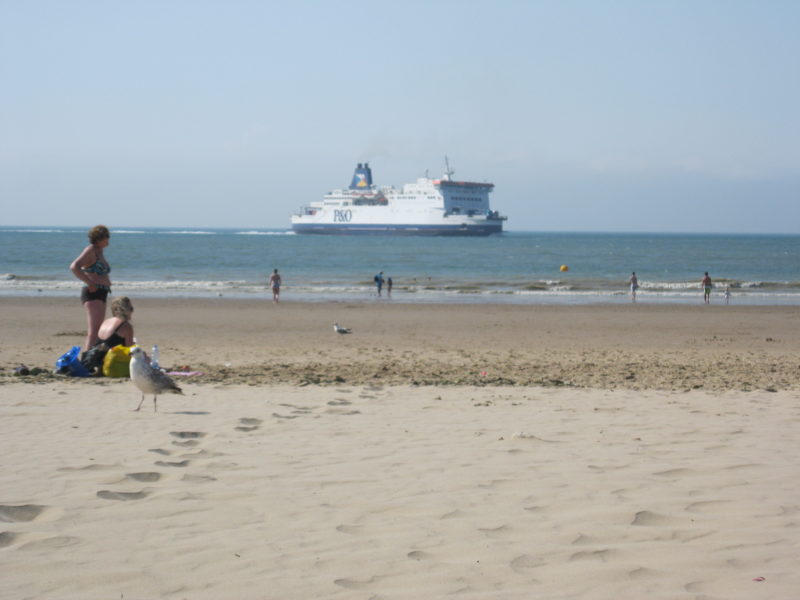
A ferry sails away from Calais terminal, seen from the beach in the evening. Photo: Suzanne Lehn
GV: How do you replace the volunteers leaving for Greece?
H: We are recruiting. We changed our management system. We have coordinators for the various tasks, we have a coordinator in Dunkirk as well. As we are dividing the roles, growing, the needs also increase, and also for the responsibilities, we need to hire more people. “Come and volunteer!” People can commit to a role, be supported and develop in that role.
If volunteers commit for a month or more, this is very, very valuable. For a week as well. We are flexible and will fit them in where the need is at the moment.
GV: How do you sustain yourself, if you go for such a long time to volunteer for a month, or a year?
H: It depends on your personal background. We give accommodations the best we can for people staying for a month or more. Obviously we can't do it for everybody, because we are limited, so if you can support yourself please do as much as you can. For the everyday lunch of volunteers we often use donations which cannot go to the camp because of not being halal. With the support of Auberge for basic necessities, we can help, if necessary.
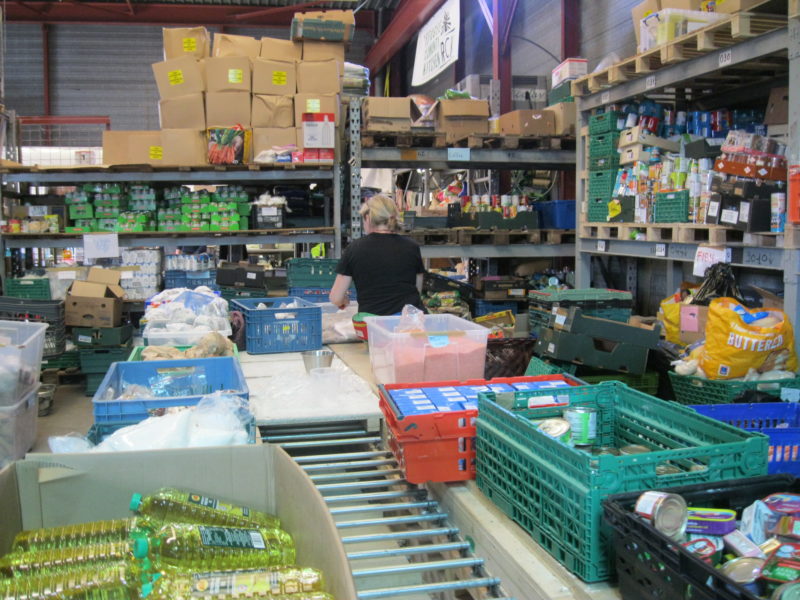
Preparing to pack food parcels. Photo Suzanne Lehn
GV: Is there any possibility of conflict with the French authorities?
H: We make volunteers here aware that their actions, and how they behave in the evening when they go out, reflects on the camp residents. If, when going to pubs they are loud, shouting, or aggressive, then it becomes another reason for the [Calais residents] to resent the camp. It is very, very important that we are all very well-behaved and very respectful, because we are here to help people and not to make it worse for them. As for the CRS, they are a military-trained force, and, absolutely, there are difficult instances whenever there is a verbal aggression, physical aggression, they take your ID, the car's number, and there are a lot of cases we were not able to take forward because we haven't got the information that we really need. And there is the fascist element as well, which poses a risk, but if you follow our rules and listen to our advice, you will be OK. You have a supportive background.
GV: Do you feel you are accepted by the CRS?
H: It depends. Sometimes it is ok. There are good people [among them], not so good people, people who are just doing their job, and they have been given a mandate to do things. What is scary is that they don't even have to think about what is right. The authorities are not made accountable for the actions of these people.
GV: What is the role of social media, what is your relationship with social media?
H: This whole thing probably happened because of social media! The catch angle has existed for 20+years, in some form or other, but because of social media things get spread quite quickly, people can get involved and know how to come here, [it enlarges] the scale and numbers of people. Last week we had an average outreach of 150 or more people a day here, volunteering, not including the long-term volunteers… so we do rely on it.
[On the other hand], we do [deal] with a lot of people wanting to achieve something when they first come, so we had to crack down on this and say it's not appropriate, what are your priorities? To help people or feel satisfied from your doing good? It's totally ok to feel good [for helping] but that should not be your reason of doing it.
But social media is very, very useful.
GV: And does it not jeopardize the security of your organization?
H: Yes, we have to be very careful about location, or features on the warehouse, about photos taken by volunteers and fascist groups sighting them. We had volunteers attacked, we had cars attacked. It has gone better, they have cracked down on this kind of things. We are very cautious and wary about refugees’ images not being taken, for their own security or that of their relatives. We insist that we have a lot of unaccompanied minors at risk from traffickers, and this is also an issue for children with their mothers, and family back in Afghanistan for instance.
GV: What message would you like to convey to our readers?
H: I had some journalist contact me, and he wanted to film me and refugees, and said, “we want to capture the gratitude.” I have a massive issue about that. I'm not here for somebody to be thankful, I'm not here because somebody is a refugee or an economic migrant. I'm here because I disagree with the way people are being treated. As a fellow human being, I realise it's in my power to do something that betters another life, and if I was in their situation, I would hope that would [also] be the case. But even if it isn't, I vote with my feet, I build the world that I want to be a part of. Every potentiality that is in front of you, it is yours to make. Do things you feel are good and you know do not harm others. That's it and it's totally possible. You come here. You can find possibilities in yourself that you had no idea could exist.
GV: Thank you very much!
Volunteers testimonies
We asked two questions to a few fellow volunteers :
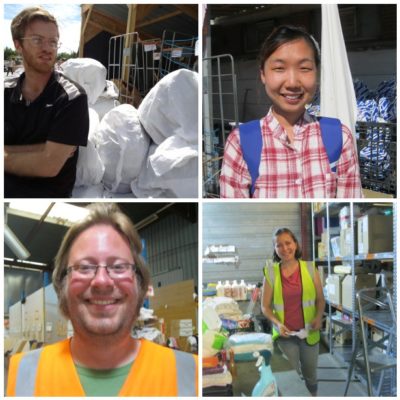
Some volunteers, clockwise from top left : Tom, Chohee, Nieves, Renke. Photos: Marie Bohner and Suzanne Lehn
1) Why have you decided to come and help in Calais?
2) What did you learn from this experience?
Tom, from Ireland, 25:
I decided to come because I felt helpless, I didn't know what's going on, should we open borders?
I learned that I can help personally. I set up a bike repair workshop, so that unaccompanied boys in the camp can graduate as bike mechanics who will be able to work for cash.
Chohee, from South Korea, in a round-the-world backpack trip:
I want to help and serve refugees. I already helped Palestinian refugees in Jordan, so I had experience.
Here there are so many people and nationalities, even though I did not yet go to the camp, I expect to understand the life of refugees, and want to share some hope.
Renke, from the Netherlands, 34, supervisor:
I have a Quaker background. I used to volunteer for homeless people and in a kitchen for an elderly community. One year ago, I went to a meeting, and the question was, if we believe, why not be in Greece and help people? I knew about Calais being a town too small to manage its refugee situation.
My life changed, I am here definitively. I used to come a few times, and after four trips, I thought, of course, I'll be back! After a year here I will reassess my priorities. My aim is to think positive and make the world positive.
Nieves, from Mexico, currently living in the U.K., 33, trained for the opening of a shop giving out hygiene products in the camp:
I was worried about the refugee crisis and wanted to do something to help, but didn't know how. So I researched Help Refugees U.K. and the Auberge des Migrants. I started reading and saw stories about other volunteers.
I discovered that it is much easier to help than I thought. There are so many things anyone can do, just get started! And I love the environment, so many people, organized and getting things done!

Jungle residents take an evening stroll on the Calais beach. Photo Suzanne Lehn
Recharging minds at the end of the day
The days with Help Refugees and Auberge des Migrants are indeed busy. They also provide beautiful encounters and conversations, friendships in the making, ending at night with a bit of laughter and food.
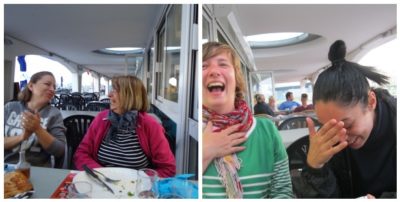
At dinner with friends. Photos Marie Bohner and Suzanne Lehn
For more information:
A blog: Passeurs d'hospitalité (meaning “Smugglers of hospitality’)
On Twitter: hashtag #helprefugees; more photos
On Facebook: the Help Refugees Facebook page; l'Auberge des Migrants Facebook page.


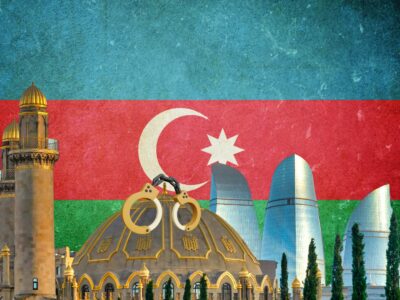
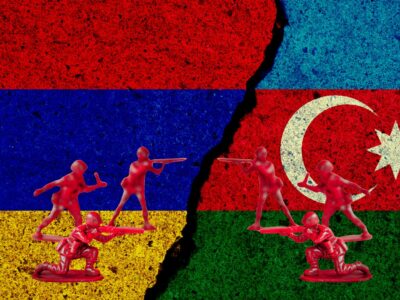



3 comments
please do us a favor take them all because I’m more than fed up with them.
Did you have to say that? Were you forced to read this feature?